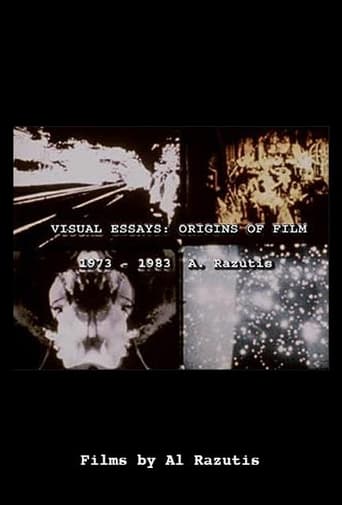Visual Essays: Origins of Film
7.5
Drama
Rated:
1984
0h55m
On:
Country: Canada
These six essays on film/image history reconstruct cinema history by 're-imagining' its origins, and its poetries, and use historical films themselves (as 'text') to provide the meanings of their creations. Together, these film essays comprise a critical/structural investigation of silent cinema ending with Segei Eisenstein's works (for Stalin) - from Lumiere and Melies through surrealism and horros, to montage and propaganda, we 're-invent' epochs in cinema that became its language and culture. These six essays on film/image history reconstruct cinema history by 're-imagining' its origins, and its poetries, and use historical films themselves (as 'text') to provide the meanings of their creations. Together, these film essays comprise a critical/structural investigation of silent cinema ending with Segei Eisenstein's works (for Stalin) - from Lumiere and Melies through surrealism and horros, to montage and propaganda, we 're-invent' epochs in cinema that became its language and culture. These six essays on film/image history reconstruct cinema history by 're-imagining' its origins, and its poetries, and use historical films themselves (as 'text') to provide the meanings of their creations. Together, these film essays comprise a critical/structural investigation of silent cinema ending with Segei Eisenstein's works (for Stalin) - from Lumiere and Melies through surrealism and horros, to montage and propaganda, we 're-invent' epochs in cinema that became its language and culture. These six essays on film/image history reconstruct cinema history by 're-imagining' its origins, and its poetries, and use historical films themselves (as 'text') to provide the meanings of their creations. Together, these film essays comprise a critical/structural investigation of silent cinema ending with Segei Eisenstein's works (for Stalin) - from Lumiere and Melies through surrealism and horros, to montage and propaganda, we 're-invent' epochs in cinema that became its language and culture.



 AD
AD
